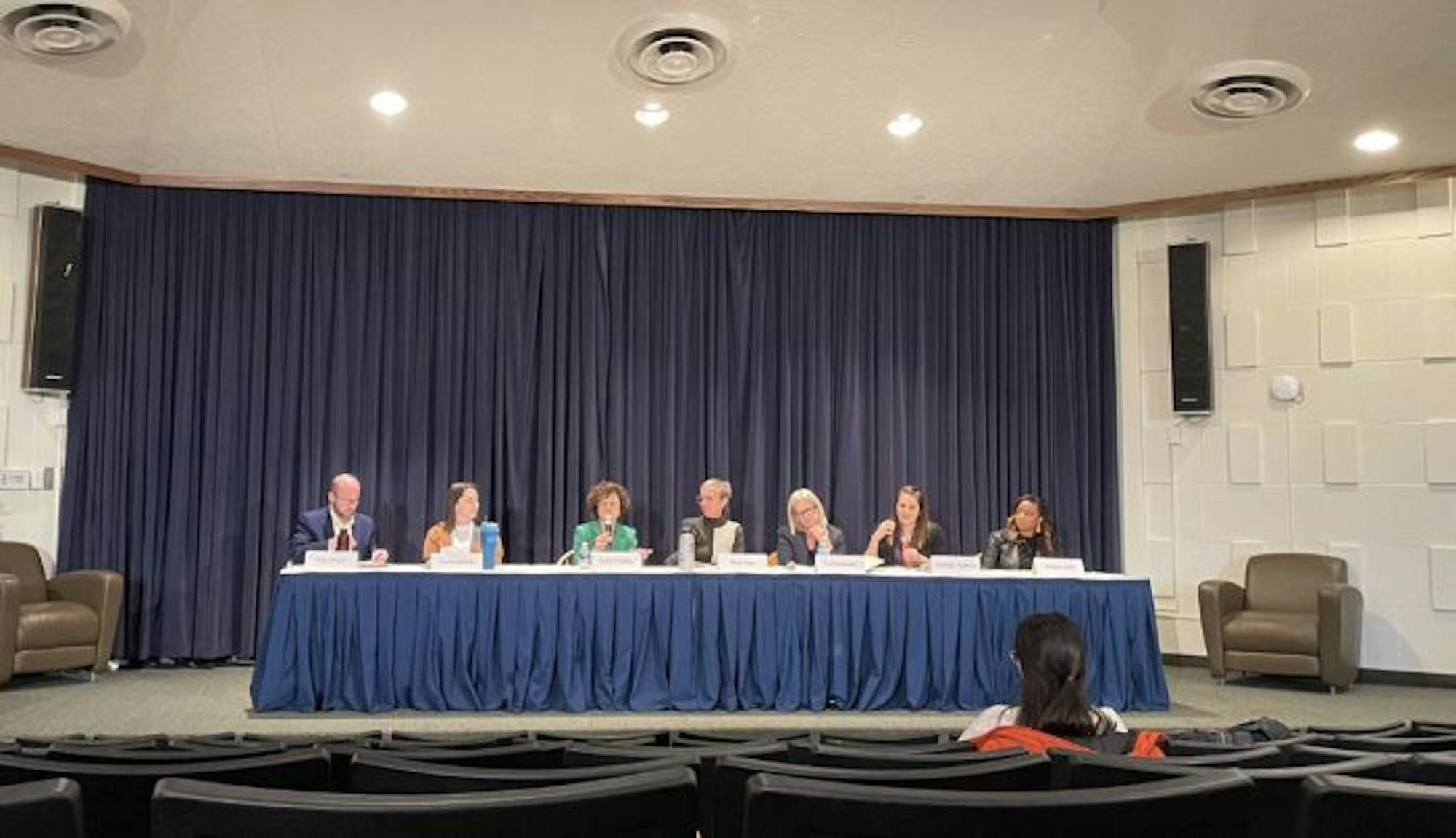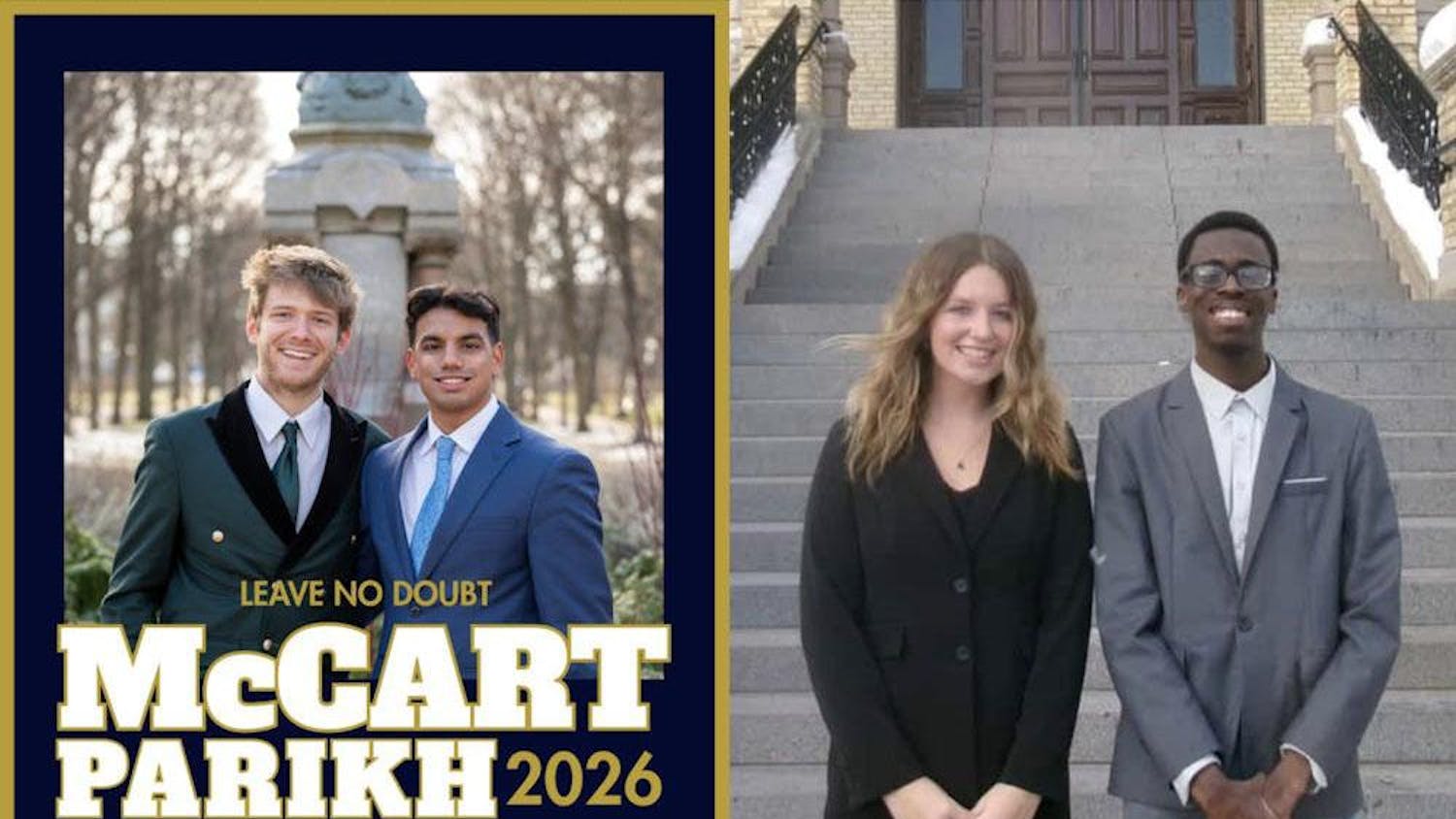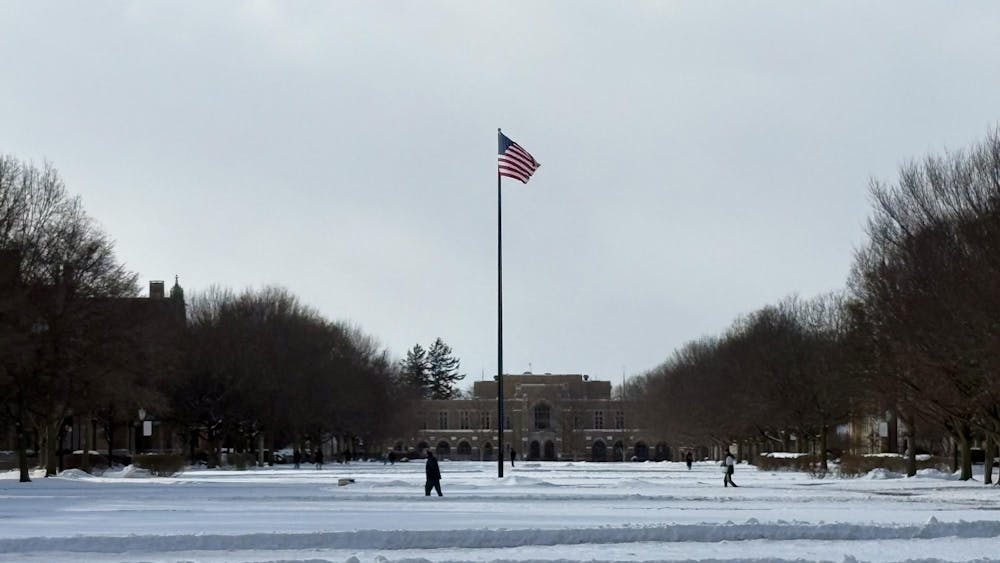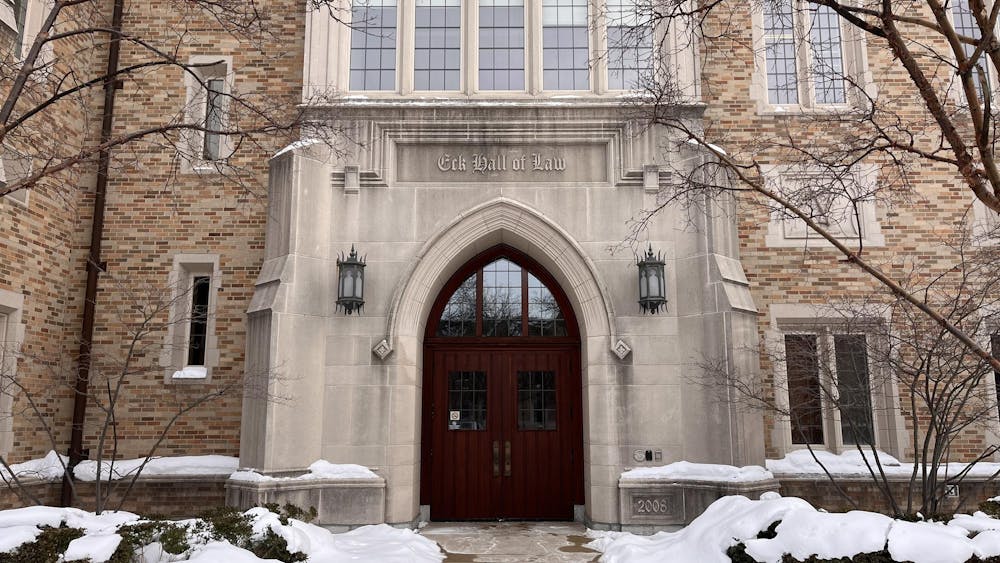On June 24, 2022, the United States Supreme Court ruled on Dobbs v. Jackson Women’s Health Organization, overturning Roe v. Wade and returning the abortion debate back to states.
Saint Mary’s College President Katie Conboy did not release a statement that day in June, even as leaders of religious colleges across the country — including University President Fr. John Jenkins — did so. Conboy has still not made a public statement on the Roe or Dobbs decision on behalf of herself or the College.
When asked at a panel Tuesday night why she thought the reversal of Roe was not something for the College to release a statement on, Conboy said it “was very hard to think about how to respond in a meaningful way that would reflect all of [Saint Mary’s] identity.”
Yet her team talked internally about how to best approach the divisive subject of abortion once students returned.
“Even though we didn't make that statement, we did begin planning even last summer and having conversations about what it would mean for our students to return to our campus in what is a changed America,” Conboy said.
She explained that leaders at Saint Mary’s knew that some students would feel a triumphant victory for a cause they believed in, while others might feel the loss of a legal right.
“We knew that we would have to find spaces for dialogue on campus and that careful planning for that dialogue would be more important than any lofty kind of public statement might be,” she said.
Tuesday’s panel served as the final event in the Post-Dobbs Program Series,featuring members of Conboy’s executive leadership team.
Daniel Horan, chair of the Academic Program Committee that presented the series, said the purpose was “to offer students, staff and faculty the opportunity to learn about a range of issues related to the U.S. Supreme Court decision last summer to overturn the Roe v. Wade decision.”
Church teachings frame abortion conversations on campus
Vice president for mission Julianne Wallace clarified the Catholic Church’s teaching on abortion at the beginning of the panel.
“The Catholic tradition asserts that from conception, new human life is sacred. All new human life is sacred and the life and the well-being of the woman who is carrying that life is also sacred,” Wallace said.
According to a 2022 Pew Research survey, 56% of Catholics believe abortion should be legal in all or most cases, Wallace said.
“What this [statistic] tells me is this is a complex issue. And what we have learned from media and from public discourse is that it seems like a very simple issue,” she said. “So our responsibility as a Catholic institution is to expand beyond a very binary understanding of life and abortion.”
Later on, panelists added that roughly 62% of the College’s student body reports being Catholic — down from 80% a decade ago.
In response to a question on how effective dialogue can happen at an institution that is also focused on maintaining its Catholic identity, Conboy explained that the Saint Mary’s community has a unique opportunity to discuss moral and theological issues through a Catholic lens, without infringing on open dialogue.
“All of the pieces of your student experience I think are infused with something that is coming from the Catholic identity as a college,” Conboy said.
Quoting former Notre Dame President Fr. Theodore Hesburgh, Conboy stressed that the College’s Catholic identity does not inhibit but rather enhances debates on moral issues.
“[Fr. Hesburgh said] ‘the Catholic university is where the Catholic Church goes to do its thinking,’” Conboy said. “That is a place where we can do that kind of thinking.”
‘It’s not a single issue’
Redgina Hill, vice president for inclusion and equity, referenced a quote by Audrey Lorde that “there is no thing as a single-issue struggle because we do not live single-issue lives.” Hill elaborated that discussions about abortion should address health disparities such as access to healthcare and historical discrimination.“It’s important for us to interrogate how this decision has an impact on the disparities that exist within healthcare, especially for people of color within this community,” Hill said.
Provost Barbara May spoke after Hill, saying that academic freedom at the College means faculty “are entitled to freedom in the classroom in discussing their subjects.” While this allows faculty to have certain conversations in their classrooms, May added that the academic freedom clause also states that faculty “should be careful not to introduce their teaching controversial matter which has no relation to the subject.”
“As you think about our policy, take that broadness into account,” May said. “If a student asks about it, and it’s not relevant, you don’t have to talk about it. If you’re not prepared to talk about it, you don’t have to talk about it.”
Resources for students
Panelists offered several resources for students during the discussion, including consultations at the Health and Counseling Center — which operates with patient confidentiality — and Campus Ministry pastoral care.In addition, Title IX protects all students at the College who find themselves pregnant or a parent, vice president for student enrollment and engagement Lori Johnson said.









